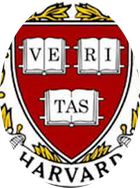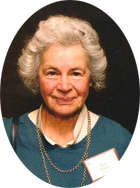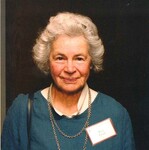Open Full Navigation
Bom-Wrapper
We're sorry but the candle you have selected is currenty in the process of being purchased or has just recently been purchased.
Please feel free to select another candle or check back in 15 minutes to see if the candle you have selected has been released for purchase.
Thank you.
Okay
We're sorry but there are no candles available for lighting.
Thank you.
Ok
You have already begun a candle purchase session. If you would like to continue with your current candle choice please click "Continue" otherwise please click "Select Another".
Thank you.
Select another
Continue


In Memory of
Rose E.
Frisch (Epstein)
Frisch (Epstein)
1918 - 2015
Click above to light a memorial candle.
The lighting of a Memorial Candle not only provides a gesture of sympathy and support to the immediate family during their time of need but also provides the gift of extending the Book of Memories for future generations.
Menu
- Obituary/Notice
- Condolences and Tributes
- Light a Memorial Candle
- Service Details
- Memories
- Share
- Help
- Book of Memories
Keefe Funeral Homes
2175 Massachusetts Avenue
Cambridge, Massachusetts
UNITED STATES
02140
In the event that there is an error
in the information presented,
please contact the funeral
home by clicking here.
Obituary for Rose E. Frisch (Epstein)

Rose Epstein Frisch, a pioneer in elucidating the biological mechanisms of fertility and cancer in women, died January 30th in Cambridge MA. Her discovery that the energy stored in body fat governs when a woman becomes fertile led to the discovery of leptin, the hormone that implements this biological pathway. The effect is that a woman’s being too lean, whether from malnutrition or intense exercise, leads to decreased fertility or even infertility. The mechanism, overlooked by demographers and the medical community, has far-reaching implications for policies for alleviating hunger across the world. In related work, Dr. Frisch demonstrated the relationship between early athletic activity and later-life cancer.
Born in the Bronx in 1918 to Louis and Stella (n´ee Skolnick) Epstein, Rose attended public school in NYC and, on the advice of her brother Lee Eastman and supported in part by the Leopold Schepp Foundation of NY, attended Smith College, graduating in 1938. There on a blind date she met a Princeton undergraduate majoring in Physics, David H. Frisch, and that evening in her diary wrote “I just met the man I am going to marry”.
Rose and David attended graduate school at the University of Wisconsin. When WWII broke out, suddenly and in secrecy David and Rose were moved in early 1942 to the nascent effort to build an atomic bomb in Los Alamos, N.M. There Rose, who had finished her Ph.D at Madison in genetics, worked as a “computer” for the charismatic physicist Richard Feynman and with the Lab Director’s wife, Kitty Oppenheimer. After the bombs were dropped on Hiroshima and Nagasaki and the war ended, Rose followed David to the Boston area, where David finished his Ph.D degree in nuclear physics and joined the Physics faculty at MIT, and Rose raised children and tended David’s students and social life. In 1960, when her youngest child was in the 7th grade, Rose went back to work in science.
Like a number of women who have made major contributions to science, Rose’s path both benefited and suffered from being largely ignored so that she could follow her intellectual curiosity without concerns of getting tenure in the (largely male) system. Being in Cambridge in academic circles led to her joining the Harvard Population Center as a Research Associate, where she had access to libraries and the world of medical research, statisticians, and demographers. She was paid at a low hourly rate, with the rationale from a Dean that “Dave makes a good salary”. Even later as a professor, she got a phone call from the National Institutes of Health that her salary on a grant application was supposed to be her annual salary and not her monthly salary, to which she replied “That is my annual salary.” But to Rose these were side issues; what mattered was the science and her hypothesis of the body’s control of fertility in response to available energy sources.
In 1974 Rose co-authored a paper that showed that a woman’s menstrual cycles can stop if she loses weight, often as little as 15 lbs. While the relation between ‘fatness’ and fertility was well known to animal breeders, and is ensconced in folk traditions like the wedding feast, having a woman, and, in Rose’s words, not only a woman but an older woman, talking about menstrual cycles in largely male conferences wasn’t well-received. The connection between fatness and fertility is now not only accepted, but the hormone responsible for the effect, “leptin”, has been discovered. There are babies named Rose by grateful mothers who were runners and who cut back their miles in order to become pregnant. Rose also told of a time when a distinguished (male) attendee at a conference aggressively challenged her during her presentation on the relationship of stored body fat and fertility. Afterwards he approached her at the podium to ask how much weight his anorectic daughter should gain to become pregnant.
Rose was a Fellow of the American Academy of Arts and Scientists, the John Simon Memorial Guggenheim Foundation, and the Radcliffe Bunting Institute, and an Associate Professor (emerita) of Population Sciences at the Harvard School of Public Health. Rose’s detective work leading to the discovery is described in a book for the non-scientist: Female Fertility and the Body Fat Connection. She is also the author of a children’s book on nutrition, Plants that Feed the World, and an edited scientific volume, Adipose Tissue and Reproduction.
Rose is survived by a daughter, Ruth Frisch Dealy, an artist in Providence R.I., a son, Henry Jonathan Frisch, a Professor of Physics at the University of Chicago, four grandchildren, and three great-grandchildren. Donations in Rose’s name can be made to Planned Parenthood and the ACLU. A memorial service will be held at a later date.
Born in the Bronx in 1918 to Louis and Stella (n´ee Skolnick) Epstein, Rose attended public school in NYC and, on the advice of her brother Lee Eastman and supported in part by the Leopold Schepp Foundation of NY, attended Smith College, graduating in 1938. There on a blind date she met a Princeton undergraduate majoring in Physics, David H. Frisch, and that evening in her diary wrote “I just met the man I am going to marry”.
Rose and David attended graduate school at the University of Wisconsin. When WWII broke out, suddenly and in secrecy David and Rose were moved in early 1942 to the nascent effort to build an atomic bomb in Los Alamos, N.M. There Rose, who had finished her Ph.D at Madison in genetics, worked as a “computer” for the charismatic physicist Richard Feynman and with the Lab Director’s wife, Kitty Oppenheimer. After the bombs were dropped on Hiroshima and Nagasaki and the war ended, Rose followed David to the Boston area, where David finished his Ph.D degree in nuclear physics and joined the Physics faculty at MIT, and Rose raised children and tended David’s students and social life. In 1960, when her youngest child was in the 7th grade, Rose went back to work in science.
Like a number of women who have made major contributions to science, Rose’s path both benefited and suffered from being largely ignored so that she could follow her intellectual curiosity without concerns of getting tenure in the (largely male) system. Being in Cambridge in academic circles led to her joining the Harvard Population Center as a Research Associate, where she had access to libraries and the world of medical research, statisticians, and demographers. She was paid at a low hourly rate, with the rationale from a Dean that “Dave makes a good salary”. Even later as a professor, she got a phone call from the National Institutes of Health that her salary on a grant application was supposed to be her annual salary and not her monthly salary, to which she replied “That is my annual salary.” But to Rose these were side issues; what mattered was the science and her hypothesis of the body’s control of fertility in response to available energy sources.
In 1974 Rose co-authored a paper that showed that a woman’s menstrual cycles can stop if she loses weight, often as little as 15 lbs. While the relation between ‘fatness’ and fertility was well known to animal breeders, and is ensconced in folk traditions like the wedding feast, having a woman, and, in Rose’s words, not only a woman but an older woman, talking about menstrual cycles in largely male conferences wasn’t well-received. The connection between fatness and fertility is now not only accepted, but the hormone responsible for the effect, “leptin”, has been discovered. There are babies named Rose by grateful mothers who were runners and who cut back their miles in order to become pregnant. Rose also told of a time when a distinguished (male) attendee at a conference aggressively challenged her during her presentation on the relationship of stored body fat and fertility. Afterwards he approached her at the podium to ask how much weight his anorectic daughter should gain to become pregnant.
Rose was a Fellow of the American Academy of Arts and Scientists, the John Simon Memorial Guggenheim Foundation, and the Radcliffe Bunting Institute, and an Associate Professor (emerita) of Population Sciences at the Harvard School of Public Health. Rose’s detective work leading to the discovery is described in a book for the non-scientist: Female Fertility and the Body Fat Connection. She is also the author of a children’s book on nutrition, Plants that Feed the World, and an edited scientific volume, Adipose Tissue and Reproduction.
Rose is survived by a daughter, Ruth Frisch Dealy, an artist in Providence R.I., a son, Henry Jonathan Frisch, a Professor of Physics at the University of Chicago, four grandchildren, and three great-grandchildren. Donations in Rose’s name can be made to Planned Parenthood and the ACLU. A memorial service will be held at a later date.
Recently Shared Condolences
Recently Lit Memorial Candles
-
We are honored to prov ...(read more)
Recently Shared Stories
Cherishing Life Sharing Forever
This Book of Memories brings those affected by loss together by encouraging communication and self-expression. By giving friends and family a special place to tell their stories and express their feelings of loss, it helps them care for one another during a very difficult time. Click on any of the links to the right to access features or information within this memorial website.
365 Days of Healing
Grieving doesn't always end with the
funeral: subscribe to our daily grief support email, designed to help
you a little bit every day, by filling out the form to the right.
Sign Up
52 Weeks of Support
It's hard to know what to say when your
loved ones experience loss. Our weekly newsletter provides insights,
quotes and messages on how to provide help during the first year.
Sign Up
Memorial Tribute Website Proudly Provided by:
Keefe Funeral Homes
2175 Massachusetts Avenue
Cambridge, Massachusetts, United States
Phone: 617-547-5544
Map | Directions | Contact Us
Follow Us
©2021 Keefe Funeral Home ⋄
Admin
Obittree Privacy Policy Terms of Use Sitemap ⋄ Powered by
FrontRunner Professional &
TA ⋄ Designed by
Don't Rest On Pretty
